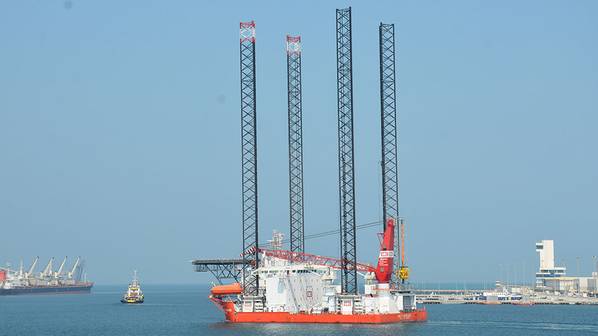
Gulf Marine Services, a UAE-based supplier of self-propelled and self-elevating support vessels (SESVs) for the offshore energy industry, has said it has completed its first Well Intervention work scope.
The company, which normally provides offshore accommodation and platform and wind farm maintenance services, said Tuesday it had used its "unique" Cantilever Workover System, installed on the self-propelled vessel GMS Evolution for its firs well intervention.
Under contract for an unnamed national oil company in the MENA region, GMS said, it had for the first time used the cantilever system, a technology designed and developed by GMS, on a live well.
GMS said that the hey operational advantages of the cantilever technology include safer operations, eliminating lifting over live wellheads; reduction in well-intervention time; radical improvement in transfer time, platform to platform, over conventional rigs, and; consequent cost savings for the field operator
The work scope involved a heavy coiled tubing well intervention, required multiple changes of bottom hole assembly, and was carried out in a third of the time that this operation would traditionally take, GMS said.
"Further efficiencies were achieved, with movements between platforms reduced to a tenth of the time taken by a conventional drilling rig, which is customarily used for intervention activities. The GMS Evolution has now moved to the next platform in the field, to complete a similar scope," the company said.
Tim Summers GMS Executive Chairman, said: "GMS is the only company in the world with this SESV technology. We are able to provide our clients with safe, innovative cost-saving technology solutions to enhance their oil and gas production, which is ever more valuable in these challenging times."
According to GMS, the cantilever system onboard the Evolution is capable of carrying out aspects of well workover activity normally conducted by a drilling rig; however, its real strength comes when frequent moves within the field are required.
"Being self-propelled, and unlike a drilling rig, the vessel does not rely on tug support so can move between locations at a fraction of the time a drilling rig requires. This offers significant cost and time savings to our clients for a well intervention program. We look forward to developing this technology to its full potential," GMS said.
MarineTraffic data shows the GMS Evolution jack-up is currently moored at an offshore field in Qatar.


